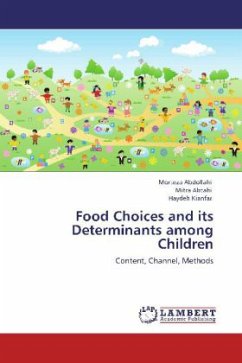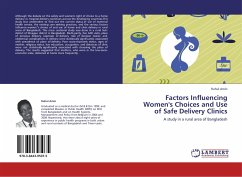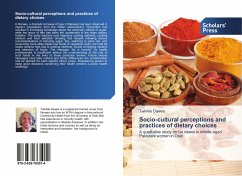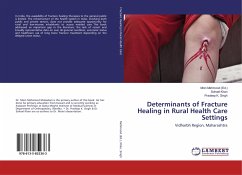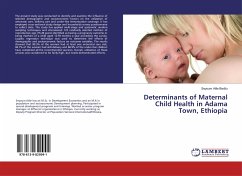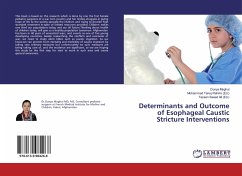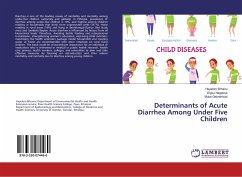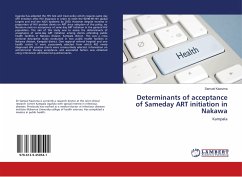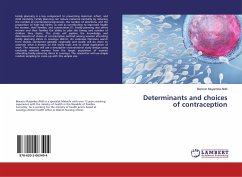
Determinants and choices of contraception
Versandkostenfrei!
Versandfertig in 6-10 Tagen
24,99 €
inkl. MwSt.

PAYBACK Punkte
12 °P sammeln!
Family planning is a key component to preventing maternal, infant, and child mortality. Family planning can reduce maternal mortality by reducing the number of unintended pregnancies, the number of abortions, and the proportion of high-risk births; as well as contributing to improved health for women, their families, and communities (1). Family planning also offers women and their families the ability to plan the timing and number of children they desire. The study will explore the knowledge and determinants of choice of contraceptive method among women attending family planning clinics in Luw...
Family planning is a key component to preventing maternal, infant, and child mortality. Family planning can reduce maternal mortality by reducing the number of unintended pregnancies, the number of abortions, and the proportion of high-risk births; as well as contributing to improved health for women, their families, and communities (1). Family planning also offers women and their families the ability to plan the timing and number of children they desire. The study will explore the knowledge and determinants of choice of contraceptive method among women attending family planning clinics in Luwingu district. An extensive literature search from studies conducted globally, regionally and locally will be done to ascertain what is known on the study topic and to avoid duplication of work. The research will use a descriptive cross-sectional study design using randomly selected women from the target population of women attending family planning clinics in Luwingu. The researcher will use simple random sampling to come up with this sample size.



